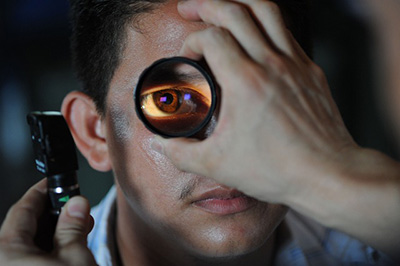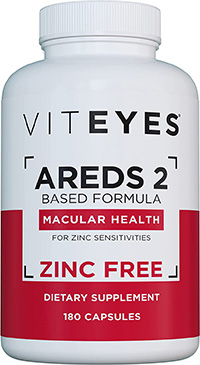Contents
Nyctalopia, often known as night blindness, is a medical disorder affecting millions worldwide. A lack of nighttime or low-light vision characterizes it. Night blindness can considerably impact safety, independence, and general quality of life, even though many may view it as a slight inconvenience. Let us examine the causes, signs, and potential treatments for this frequently disregarded visual impairment.
Understanding Night Blindness
Rhodopsin, a retinal pigment required for adequate vision in dim light settings, is chiefly responsible for night blindness. Several things, including a lack of vitamin A, genetic disorders, and underlying eye diseases, including retinitis pigmentosa, cause this deficiency.
Symptoms of Night Blindness

The inability to see well at dusk or in dark situations is the most noticeable sign of night blindness. People with night blindness frequently encounter:
- Reduced visual acuity results in a hazy or unclear perception of the environment, making it much harder to detect details and distinguish between objects.
- Glare sensitivity: Bright lights, like approaching headlights or streetlights, might make you uncomfortable and glare excessively, which makes it harder to see.
The eyes need time to adjust from a bright environment to a dimmer one. Due to their slower rate of adaptation, people with night blindness find it challenging to maneuver in shifting lighting situations.
Impact on Daily Life
Night blindness can significantly impact a person’s activities and daily life. Some significant difficulties include the following:
- Driving challenges: Nighttime driving is dangerous because of decreased vision and sharp glare. Because of night blindness, driving restrictions or the usage of specialized tools may be necessary.
- Outdoor restrictions: People with night blindness may find it challenging to walk, exercise, or participate in outdoor activities in poorly lit locations. Their involvement in nighttime events is frequently restricted by their fear of tripping, running into things, or getting lost.
- Impairment of social and professional life: Employment opportunities that entail working into the night or attending social functions may be hampered by night blindness. Due to their visual impairment, people may feel alone or reliant on others.
Seeking Solutions

Even though night blindness is often a permanent illness, there are some ways to improve the lives of those who have it:
Regular eye exams can help prevent or delay the advancement of night blindness by early detecting and treating underlying eye disorders.
- Nutritional support: Consuming enough vitamin A-rich foods like carrots, spinach, and sweet potatoes will help prevent night blindness caused by vitamin A insufficiency.
Visual aids, such as prescription eyeglasses or contact lenses with specific lenses, such as anti-glare coatings, can help reduce the effects of night blindness on daily activities.
- Assistive technology: People with night blindness can benefit significantly from advances in low-vision equipment, such as magnifying glasses or goggles, especially regarding particular jobs or tasks.
- Safety measures: Wearing reflective material and steering clear of situations with excessive brightness might help reduce the hazards of night blindness.
Natural Remedies for Night Blindness
Natural remedies for night blindness may be needed when you do not see as clearly in the dark as others. When you enter the darkness, your eyes adapt very slowly to it. There are a couple types of light-sensitive cells in the retina:
1. Rods
2. Cones
Up to one hundred twenty million rods are spread throughout the retina. Although rods are sensitive to all noticeable light, they contain only one type of pigment and cannot recognize colors. They are responsible mainly for night vision.
If you’re experiencing this problem, you are not going blind. The main issue mentioned above is a lack of vitamin A, which the body uses to make visual purple and help you see in the dark. An inadequate diet can cause a lack of vitamin A in the system.
The body has a fat malabsorption syndrome and does not correctly absorb oil-soluble vitamins. A zinc deficiency will cause the liver to poorly convert carotene to vitamin A. Cystic fibrosis, celiac disease, and various food allergies can produce intestinal changes, affecting fat-soluble vitamin absorption.
1. Make sure you are receiving adequate vitamin A. The therapeutic dose would be 25,000 IU daily for only a few days. However, too much vitamin A can be harmful.
2. A safer form of vitamin A is carotenoids, such as beta or marine carotene (up to 100,000 IU daily). Drink three cups of carrot juice every day. Eat green and yellow vegetables.
3. Take 15 to 20 milligrams of zinc daily.
4. Some people wear more powerful glasses prescription when driving at night. Keep the headlights and windshield clean. Do not wear sunglasses at dusk. Drive slower at night. Better yet, it only operates during the day.
5. Take bilberry extract capsules or liquid, PCOs from grapeseed or white pine (100 mg, three times daily), and coQ10 (60 mg, three times daily).
Even though it is sometimes disregarded, night blindness is a visual impairment that can profoundly impact a person’s life. The first steps in managing this ailment are recognizing the symptoms, comprehending the causes, and looking for the best solutions. Even in low-light circumstances, individuals with night blindness can lead lives with greater independence and safety because of increased awareness, more accessible access to visual aids, and thorough eye care.
Health Disclaimer: The information on this website is for educational uses only and is not a substitute for professional medical advice. Always consult an authorized healthcare provider for any health concerns before using any herbal or natural remedy. We do not establish, treat, cure, or prevent any disease. Reliance on any material from this website is solely at your own risk. We are not responsible for any adverse effects resulting from the use of information or products mentioned on this website.
REFERENCES
Vance Ferrell Harold M. Cherne, M.D. The Natural Remedies Encyclopedia [Book]. – Altamont, TN: Harvestime Books, 2010. – Vol. Seventh Edition: 7: pp. 392.
- National Eye Institute (NEI): A division of the National Institutes of Health (NIH) that conducts and supports research on eye diseases and vision disorders. Their website likely contains information on night blindness.https://www.nei.nih.gov
- American Academy of Ophthalmology (AAO): The professional organization for ophthalmologists in the United States. Their website may have patient resources on night blindness.https://www.aao.org
- The Mayo Clinic: A renowned medical center and research institution. Their website often has comprehensive patient information on various conditions, including night blindness.https://www.mayoclinic.org
- PubMed: A database of biomedical literature maintained by the National Library of Medicine (NLM). You can search for scientific articles on night blindness here.https://pubmed.ncbi.nlm.nih.gov

